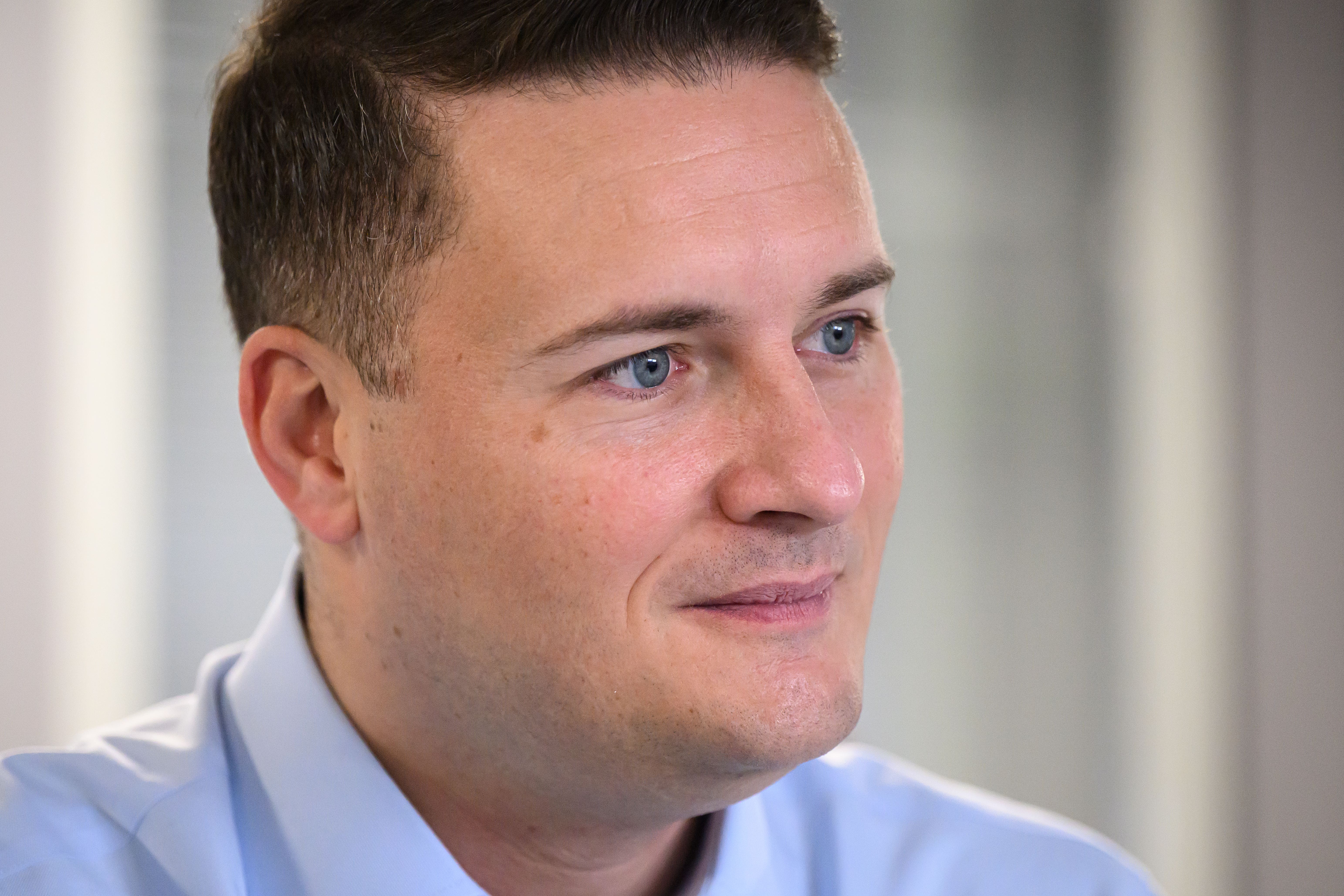Private schools have means to help special needs pupils hit by VAT – Streeting
Independent schools should be able to mitigate against pupils with special educational needs are priced out, Wes Streeting has said.

Your support helps us to tell the story
From reproductive rights to climate change to Big Tech, The Independent is on the ground when the story is developing. Whether it's investigating the financials of Elon Musk's pro-Trump PAC or producing our latest documentary, 'The A Word', which shines a light on the American women fighting for reproductive rights, we know how important it is to parse out the facts from the messaging.
At such a critical moment in US history, we need reporters on the ground. Your donation allows us to keep sending journalists to speak to both sides of the story.
The Independent is trusted by Americans across the entire political spectrum. And unlike many other quality news outlets, we choose not to lock Americans out of our reporting and analysis with paywalls. We believe quality journalism should be available to everyone, paid for by those who can afford it.
Your support makes all the difference.Private schools “have the means” to help children with special educational needs at risk of being priced out by plans to apply VAT to fees, the Health Secretary has said.
From January, the Government plans to remove the VAT exemption and business rates relief for private schools to enable funding for 6,500 new teachers in state schools.
Currently, independent schools do not have to charge 20% VAT on their fees because there is an exemption for the supply of education.
I’d also say to independent schools, they have the means. They have hiked up their fees with inflation-busting increases for well over a decade and I’m sure they can take steps to mitigate against children being forced to drop out, if they're the good charities they say they are
There are no plans to row back the policy, the Prime Minister’s official spokesman said, after pleas from European ambassadors to exempt international schools and concerns raised about how it will affect private schools’ provision to pupils with special educational needs.
Wes Streeting told LBC: “Children with statements of special educational needs and disabilities will be exempt.”
Pushed on how this will work for children who do not have that statement, Mr Streeting said independent schools have the means to deal with those situations.
“Firstly, I’d say the statement is available to children and young people and their parents in that situation.
“I’d also say to independent schools, they have the means. They have hiked up their fees with inflation-busting increases for well over a decade and I’m sure they can take steps to mitigate against children being forced to drop out, if they’re the good charities they say they are.”
He said he would tell private schools that are “pleading poverty” that “if you’re worried about whether children in your schools will continue to access your schools, you’ll have to cut your cloth in the way that state schools have had to do.”
Critics of the VAT change have warned about the short timescale involved and the risk of unintended consequences, including the impact on children with learning difficulties who attend specialist independent schools and military families.
Asked about the Health Secretary’s comments, the Prime Minister’s official spokesman said: “I think he was making the point that fees for students with an education, health and care plan (EHCP) that states their needs cannot be met in the state sector will have their private school fees paid by the local authority, but they can reclaim the VAT they pay.
“I think he was making the broader point that for those students who do not fit that category, it’s, obviously, ultimately a decision for private schools, how they pass on the increase in VAT and if they do.”
The spokesman said: “There are no plans to change the policy that’s previously been announced.
“We want to ensure all children have the best chance in life to succeed and ending tax breaks on private schools will help to raise the revenue needed to fund our education priorities for next year.”
Education Secretary Bridget Phillipson has said that children with EHCPs will not be affected.
Labour MP Rachael Maskell has urged her party to perform a last-minute U-turn on the policy ahead of Wednesday’s Budget.
A delay to the policy would be “incredibly helpful” so there could be time for a “proper debate and discussion” over how it would affect pupils with special educational needs, Ms Maskell told The Telegraph.
European ambassadors have warned that imposing VAT on international schools in the UK could lead to hundreds of pupils leaving.
German ambassador Miguel Berger and French ambassador Helene Duchene told The Times they wanted international schools excluded from plans.